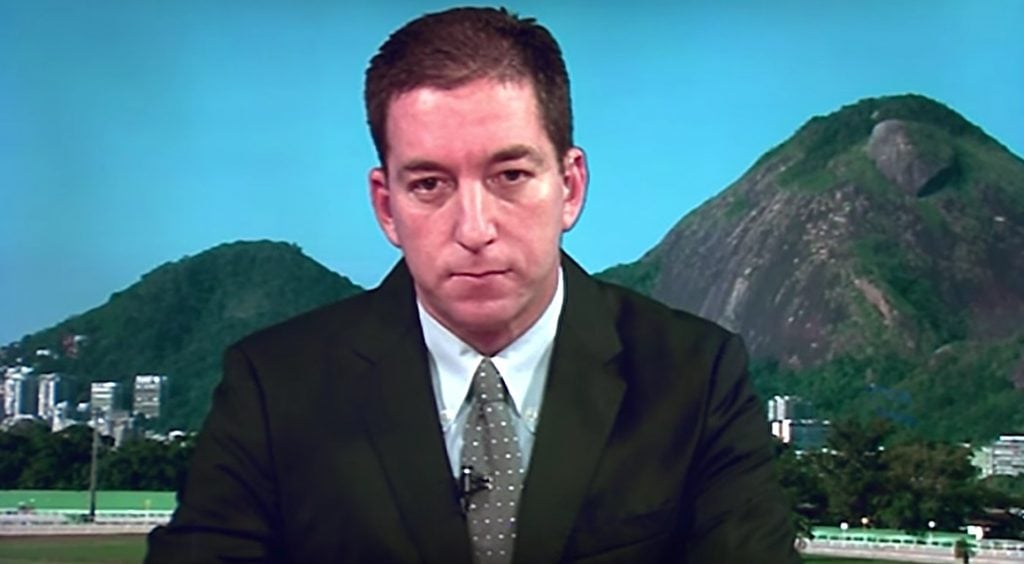
Gay journalist and founder of The Intercept Glenn Greenwald was charged by federal prosecutors in Brazil with “cybercrimes” on Tuesday “for his role in bringing to light cellphone messages that have embarrassed prosecutors and tarnished the image of an anti-corruption task force,” the New York Times reported.
Greenwald responded to the charges in an interview with The New Yorker‘s Isaac Chotiner. Greenwald told Chotiner, “I think that what a lot of people are not fully understanding about Brazil is that there are a lot of people in the government, beginning with the President himself, who explicitly want a resurrection of the military dictatorship that ruled the country until 1985. They are not joking about it. “
Greenwald also explained his long history of antagonizing Bolsonaro: “I actually wrote about Bolsonaro all the way back in 2014, in an article he hated, before anyone contemplated that he might be President. I was just trying to explain to people how someone this extreme was even a member of Congress. The title was, ‘The Most Misogynistic, Hateful Elected Official in the Democratic World: Brazil's Jair Bolsonaro.' And then, in 2017, while he was setting up his Presidential run, I called him a fascist on Twitter, and he responded with an extremely crude and anti-gay epithet about anal sex that made news. And then, when my husband entered Congress as a left-wing member, in early 2019, replacing another L.G.B.T. congressman, who fled the country in fear of his life, largely due to Bolsonaro, David and he had a back-and-forth that went viral in Brazil. So he already hated me before we started this reporting. And once we did this reporting, he said my marriage was a fraud and that we adopted Brazilian children as a fraud to avoid deportation. And then of course he has threatened I would be in prison over the reporting. So we have a long and contentious history.”
Greenwald has been blasted in the U.S. for his regular appearances on conservative news programs like Tucker Carlson Tonight in which he slammed Democrats for trying to get to the bottom of Russian interference in the U.S. election, called it a “conspiracy theory,” and defended Attorney General Bill Barr.



